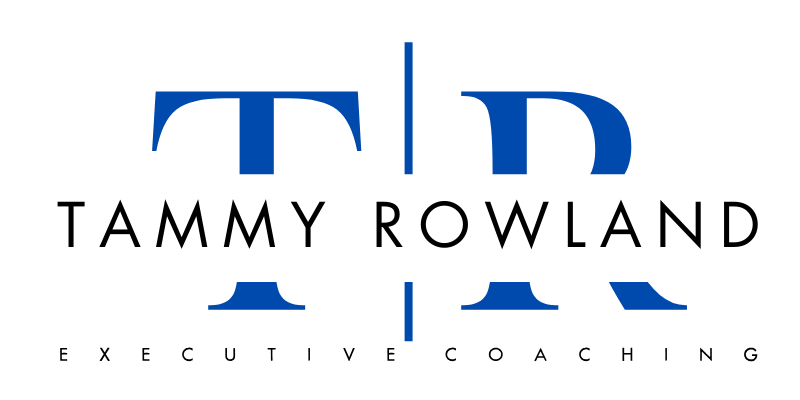
Guardians of Integrity: Navigating Life’s Challenges with Honesty and Values

In today’s fast-paced and complex world, personal integrity remains a vital attribute that influences our relationships, professional success, and overall well-being.
Rooted in honesty, trustworthiness, and ethical principles, integrity serves as the foundation for building strong connections, earning respect, and achieving long-term goals.
This article explores the multifaceted aspects of integrity, including its role in leadership, decision-making, and personal growth.
By understanding and embracing integrity, individuals can navigate ethical dilemmas, maintain authenticity, and reap the numerous benefits of living a life of integrity.
The Importance of Personal Integrity in Relationships

Personal integrity plays a crucial role in establishing and maintaining healthy relationships. It encompasses various aspects, including artistic integrity, personal integrity, and intellectual integrity.
Integrity involves being honest, trustworthy, and having strong moral principles. It means consistently acting in a way that aligns with one’s values and beliefs. In relationships, personal integrity is essential for building trust and fostering open communication.
When individuals exhibit integrity, they are more likely to be seen as reliable partners. This not only strengthens the bond between individuals but also encourages mutual respect and understanding.
Furthermore, integrity means having public integrity, where one’s actions reflect positively on their character. By embodying integrity, individuals can create a foundation of trust and authenticity in their relationships, leading to healthier and more fulfilling connections.
The Impact of Intellectual Integrity on Professional Success

The consistent practice of a high standard of quality work and upholding intellectual honesty is crucial for achieving professional success in various fields.
Intellectual integrity refers to the commitment to truthfulness, accuracy, and fairness in our thoughts and actions. It involves being transparent and accountable for our beliefs and ideas.
In the professional realm, intellectual integrity plays a significant role in building trust and credibility with colleagues, clients, and stakeholders. When individuals consistently demonstrate intellectual honesty, they are seen as reliable and trustworthy, a position that enhances their professional reputation and opens doors for opportunities.
Moreover, intellectual integrity fosters critical thinking and problem-solving skills, as individuals are more likely to engage in thoughtful analysis and consider different perspectives before making decisions.
Overall, the practice of intellectual honesty is not only essential for personal growth but also for achieving long-term professional success.
Building Trust Through Artistic Integrity

Artistic trust is cultivated when individuals consistently demonstrate honesty and authenticity in their creative expressions. In the realm of art, integrity plays a pivotal role in establishing credibility and connecting with audiences. When artists uphold a commitment to truthfulness and sincerity in their work, they build a foundation of trust with their viewers.
This trust allows for a deeper connection and engagement, as audiences recognize and appreciate the artist’s genuine intentions and efforts. Moreover, artistic integrity fosters a sense of transparency and openness, allowing for meaningful dialogue and interpretation of the artwork. It also inspires other artists to follow suit, creating a collective culture of integrity within the artistic community.
Integrity as a Core Value in Leadership

As a core value in leadership, demonstrating unwavering honesty and authenticity fosters trust and creates a culture of transparency within an organization. When leaders prioritize integrity, they set the example for others to follow and establish a foundation of trust that permeates throughout the entire organization.
This commitment to integrity can manifest in various ways:
• Leading by example: Leaders who consistently speak and act with integrity inspire their team members to do the same, creating a positive and ethical work environment.
• Open communication: Leaders who value integrity promote open and honest communication, encouraging employees to share their thoughts and concerns freely.
• Ethical decision-making: Leaders who prioritize integrity make decisions based on ethical principles, ensuring that their actions align with the organization’s values and interests.
Navigating Ethical Dilemmas With Integrity

When faced with ethical dilemmas, leaders who prioritize ethical decision-making navigate these challenging situations with a steadfast commitment to honesty and transparency. They understand that their actions, words, and decisions matter and have far-reaching consequences, not only for themselves but also for their team and organization.
These leaders recognize that ethical dilemmas require careful consideration of the potential impact on stakeholders, as well as an understanding of legal and moral obligations. They strive to make decisions that align with their core values and uphold the principles of fairness, integrity, and accountability.
Integrity in the Digital Age: Online Ethics
The advent of the digital age has brought about unprecedented opportunities for communication, information sharing, and connectivity. However, it has also posed new challenges and complexities when it comes to maintaining integrity, particularly in the online realm.
Online ethics, also known as digital ethics, encompass a set of principles and behaviors that guide individuals’ conduct in the digital world, ensuring that they uphold integrity, honesty, and respect in their online interactions.
Truth and Accuracy: Online integrity starts with a commitment to truth and accuracy. Sharing factual information and verifying the credibility of sources before disseminating information is essential. Spreading false information or participating in online misinformation campaigns erodes trust and ethical standards.
Privacy and Consent: Respecting individuals’ online privacy is a cornerstone of online ethics. Obtaining consent before sharing personal information, photos, or data is essential. This includes being mindful of data privacy regulations and refraining from invasive practices such as doxing or cyberstalking.
Cyberbullying Prevention: Online ethics involves promoting a culture of kindness and respect. Cyberbullying and online harassment have become pervasive issues. Upholding integrity means refraining from engaging in such behavior and actively discouraging it when encountered.
Digital Citizenship: Being a responsible digital citizen means understanding and adhering to the rules and guidelines of online platforms. This includes respecting terms of service, community guidelines, and copyright laws. Digital citizenship also involves reporting inappropriate or harmful content to maintain a safe online environment.
Transparency and Authenticity: Online integrity demands transparency in online interactions. This means being honest about one’s identity, affiliations, and intentions when engaging with others. Deceptive practices like trolling or impersonation are clear violations of online ethics.
Information Security: Protecting sensitive information, including personal data and confidential business data, is a fundamental aspect of online ethics. Safeguarding against cyberattacks, data breaches, and hacking is not only an ethical responsibility but also a legal one.
Digital Footprint Management: Being aware of the digital footprint one leaves behind is essential. Online ethics entail being mindful of the content one shares, as well as its potential long-term impact on one’s reputation and others.
Digital Literacy: Promoting digital literacy is a crucial part of online ethics. Educating individuals on how to critically evaluate online content, spot misinformation, and discern credible sources is vital in today’s information-rich but often misleading digital landscape.
The Role of Integrity in Decision-Making

A leader’s decision-making process is influenced by their commitment to upholding ethical standards and acting in the best interest of their stakeholders. Integrity plays a crucial role in this process, as it guides leaders to make decisions that are morally upright and transparent. When leaders prioritize integrity, they ensure that their actions align with their values, principles, and organizational goals.
Making decisions with integrity also means considering the impact on all stakeholders, including employees, customers, shareholders, and the community at large. Leaders who demonstrate integrity are more likely to gain the trust and respect of their team and stakeholders, fostering a positive work environment and enhancing organizational reputation.
Moreover, acting with integrity in decision-making establishes a strong ethical culture within the organization, promoting accountability, fairness, and responsibility at all levels.
Maintaining Integrity in Challenging Situations

Maintaining integrity in challenging situations is a multifaceted and principled approach to ethical conduct. It encompasses several key elements that committed individuals must embody and apply when confronted with difficult circumstances.
1. Honesty and Transparency: Integrity starts with unwavering honesty. In challenging situations, it’s crucial to resist the temptation to deceive or withhold the truth. Being transparent and forthcoming, even when facing discomfort or potential consequences, is a hallmark of someone with integrity. This not only builds trust but also ensures that your actions align with your principles.
2. Staying True to Values: Integrity requires individuals to stay steadfast in their commitment to their moral principles and values, even when external pressures threaten to sway them. It means having a strong sense of self-awareness and an unwavering dedication to doing what is the right thing, no matter the circumstances. This consistency in behavior and decision-making is what distinguishes individuals of integrity.
3. Moral Courage: Challenging situations often demand moral courage – the ability to make difficult choices that align with one person’s beliefs. Maintaining integrity may require standing up for what is ethical, even when it means going against the prevailing opinion or facing resistance. This kind of courage can be challenging, but it is a defining characteristic of those who maintain their integrity.
4. Accountability and Responsibility: Integrity involves being accountable for one’s actions. This means taking responsibility for the consequences of your choices, whether positive or negative. In challenging situations, if mistakes are made, individuals with integrity do not shy away from admitting them and taking steps to make amends. This accountability demonstrates a commitment to the values you uphold.
5. Ethical Problem-Solving: Integrity does not mean being rigid or inflexible. Challenging situations often require finding ethical solutions to complex problems. This might involve making principled compromises that do not compromise your core values. Ethical problem-solving demonstrates adaptability while staying true to your principles.
In conclusion, maintaining integrity in challenging situations is a multifaceted process that encompasses honesty, commitment to values, moral courage, accountability, and ethical problem-solving. It is a testament to an individual’s character and their dedication to ethical conduct, building trust, respect, and personal growth even when faced with adversity, failure, and conflict.
Cultivating Integrity in the Workplace
Cultivating a workplace environment that values ethical behavior and upholds moral principles is essential for fostering trust and promoting a positive organizational culture. When integrity is prioritized, employees feel valued and respected, leading to increased job satisfaction and commitment.
Integrity can be cultivated by establishing clear ethical guidelines and expectations, providing regular ethics training, and setting a strong example from top leadership. Encouraging open communication and transparency also play a crucial role in creating an environment where integrity thrives.
When employees feel comfortable reporting ethical concerns without fear of retaliation, it helps maintain a culture of trust and accountability. Furthermore, recognizing and rewarding ethical behavior reinforces the importance of integrity and encourages others to follow suit.
Teaching Integrity and Moral Principles to the Next Generation
Teaching integrity and moral principles to the next generation is a vital responsibility with far-reaching implications. It involves instilling a strong sense of ethics, honesty, and moral values in young minds, equipping them to navigate the complexities of life with a moral compass. Such education goes beyond imparting facts and figures; it shapes character, empathy, and a sense of social responsibility.
By teaching integrity, we help young people understand the importance of honesty and doing the right thing, even when it’s challenging. This not only helps them build trustworthiness but also forms the foundation for strong personal relationships and effective communication.
Moral principles, on the other hand, guide decision-making and behavior based on values such as fairness, kindness, and respect for others. Teaching these principles fosters empathy, tolerance, and a sense of justice, preparing the next generation to contribute positively to society.
Moreover, when young individuals are taught integrity and moral principles, they are more likely to become responsible citizens who make ethical choices in their personal and professional lives. This, in turn, contributes to the development of a more just, compassionate, and morally conscious society.
In essence, the idea of imparting integrity and moral principles to the next generation is an investment in the future, ensuring that our society is guided by individuals who value ethics, empathy, and a commitment to doing what is right, ultimately leading to a more harmonious and just world.
Integrity and Accountability: Taking Responsibility for Our Actions
Taking responsibility for our actions is an essential aspect of maintaining accountability in both personal and professional settings. It is a demonstration of integrity and a key component of ethical business behavior.
When we take responsibility for our actions, we acknowledge the impact of our wrong choices and accept the consequences that come with them. This act not only shows maturity and self-awareness but also fosters trust and respect from others.
In personal relationships, taking responsibility allows us to address conflicts and constructively resolve them. In professional settings, it promotes a culture of transparency and honesty, enhancing teamwork and productivity.
Integrity and Authenticity: Staying True to Yourself
• Allow them to stay true to their deeply held values and beliefs, enabling them to consistently make ethical decisions and maintain unwavering integrity in all aspects of their lives. By upholding these principles, individuals can foster trust, build strong relationships, and establish themselves as beacons of moral character within their communities and organizations.
• Fosters self-confidence and self-acceptance by encouraging individuals to embrace their unique qualities and express themselves authentically, without the fear of being judged or misunderstood. This empowering experience allows people to fully embrace their true selves, leading to personal growth and a sense of liberation.
• Inspiring authenticity in others creates a trusting, creative, and inclusive environment where individuals thrive, conflicts are resolved swiftly, and personal growth is encouraged. This culture attracts talent, enhances adaptability, and empowers leadership, fostering long-term success.
• Authenticity forms the bedrock upon which personal growth, professional success, and meaningful connections are built. When individuals embrace their true selves, they embark on a journey of self-discovery and development, leading to increased self-awareness and fulfillment.
The Long-Term Benefits of Living With Integrity
Living a life of honesty and moral uprightness brings about long-term benefits that extend to both personal and professional domains.
In personal relationships, integrity fosters trust and respect, forming strong and meaningful connections with others. By consistently acting with integrity, individuals gain a reputation for being reliable and trustworthy, which opens doors for opportunities in their professional lives.
Employers value integrity as a fundamental quality in employees, as it ensures ethical behavior and responsible decision-making. Moreover, living with integrity cultivates a sense of self-worth and inner peace, leading to improved mental and emotional well-being. It also enables individuals to navigate life’s challenges with more integrity and, make choices that align with their values and principles.
Ultimately, the long-term benefits of living with integrity create a solid foundation for success and complete fulfillment in both personal and professional spheres.
Frequently Asked Questions
How Does Integrity Impact Personal Relationships and Why Is It Important?
Personal relationships are impacted by integrity as they establish trust, honesty, and reliability. Integrity is important because it creates a strong foundation for relationships, fosters open communication, and promotes mutual respect and understanding between individuals.
What Are Some Ways That Intellectual Integrity Can Contribute to Professional Success?
Intellectual integrity can contribute to professional success by fostering trust, credibility, and ethical decision-making. It ensures that individuals adhere to principles of honesty, objectivity, and accountability, enhancing the quality of their reputation and facilitating collaboration and innovation within their field.
How Does Artistic Integrity Help in Building Trust With Others?
Artistic integrity helps in building trust with others by demonstrating a commitment to honesty, authenticity, and ethical behavior in the creative process. This fosters a sense of reliability and credibility, leading to stronger relationships and collaborations.
How Can Integrity Be a Core Value in Effective Leadership?
Effective leadership relies on a strong work ethic and core values such as integrity. It encompasses honesty, trustworthiness, and ethical behavior. Leaders with integrity inspire confidence, build trust among their team members, and make sound decisions based on strong moral principles.
What Are Some Strategies for Maintaining Integrity in Challenging Situations?
In challenging situations, it is important to maintain integrity by consistently upholding ethical standards, for example, being transparent and honest in communication, seeking feedback and advice from trusted individuals, and taking complete responsibility for one’s actions.
Conclusion

In conclusion, personal integrity is a crucial aspect of various aspects of life. This includes relationships, professional success, art, leadership position, ethical decision-making, teaching, accountability, and authenticity.
Living with integrity can lead to long-term benefits and positive outcomes. It is important to prioritize moral principles and responsibility to maintain personal integrity and build trust with others.




